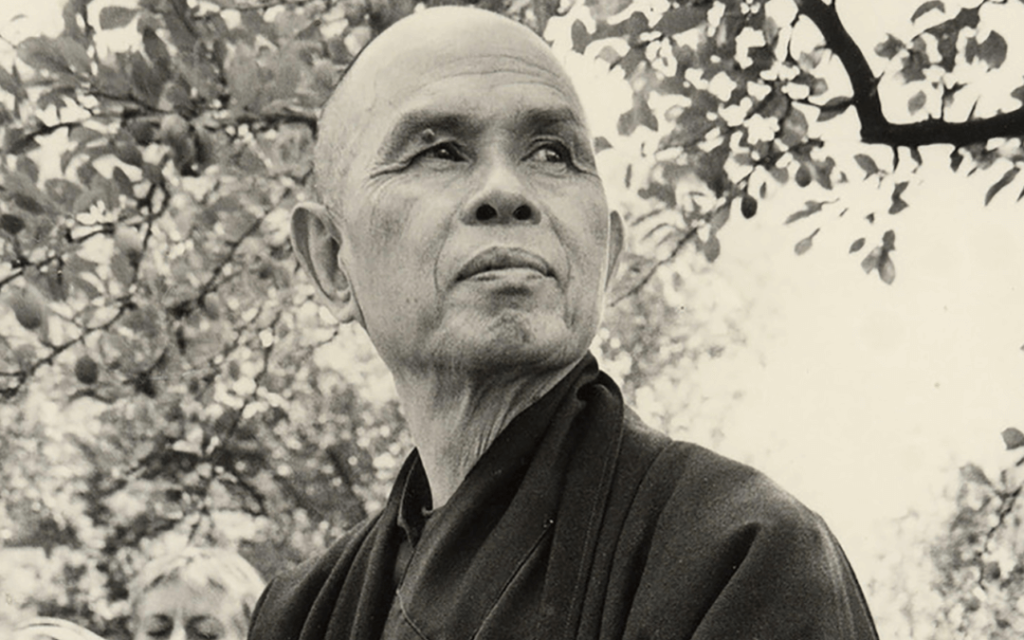As TIME reported this week, in a matter of weeks, days, or possibly even hours, Vietnamese monk Thich Nhat Hanh — known by his disciples as “Thay” — will no longer be among the living. Although his passing could be viewed as a tragedy for some of his followers, the monk’s impending next step in his spiritual journey is also shining a light on the wisdom and lessons he passed down to those who followed him over the course of his eventful life.
Thay, which is Vietnamese for “teacher”, a renowned spiritual leader, is perhaps best known as the “Father of Mindfulness.” His teachings have brought peace and joy to millions over his 92-year life, and they all stem from his early Buddhism beliefs that mindfulness goes hand in hand with living a content and fulfilling existence.
Mindfulness is one of the foundations of a mind-body-spirit, or whole person, approach. The practice of even one minute a day has been found to lower stress, increase focus and joy, and assist in improving mental health, substance use, and other related issues such as chronic pain [1] [2] [3]. For some people — including many of Thay’s pupils — the Buddhist principle provides life-changing results unlike anything they’ve ever tried before.
The process of becoming more aware of oneself and one’s surroundings physically, spiritually, and mentally is Thay’s own spin on a very simplified version of Buddhism. It also provided the basis for evidence based approaches for behavioral health treatment like Mindfulness-Based Stress Reduction and work in tandem with EMDR and other trauma therapies. Although it has enhanced the lives of everyone from Martin Luther King Jr. to Oprah Winfrey, committing to it fully is a lifelong process and should be practiced daily to achieve its full benefits.
Part of what makes Thay’s teachings so effective though, and largely why it works so well for clients at Roots Through Recovery, is that everyone can always become more mindful and no matter your commitment level, the noticeable improvements on your life are immeasurable. Regardless of where a person may stand within the Buddhist doctrine, self-improvement and mindfulness are two aspects that we believe can always help. So even as Thay’s life comes to an end, we will continue to honor his blessings to the world and keep his legacy alive.
References
[1] https://pdfs.semanticscholar.org/1727/db7dbe033fdd89a021baabac0cbff58bab2a.pdf
[2] http://citeseerx.ist.psu.edu/viewdoc/download?doi=10.1.1.912.4622&rep=rep1&type=pdf
[3] https://pdfs.semanticscholar.org/05c1/4273f0d3d4acdac20ee49c76ba3aa3afe7a5.pdf




